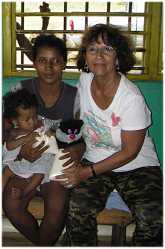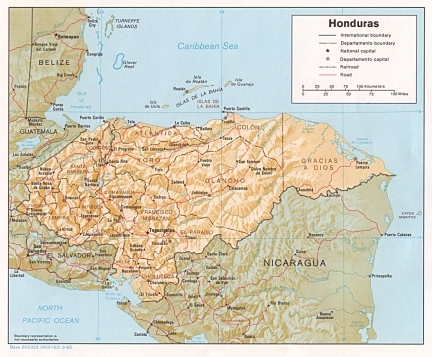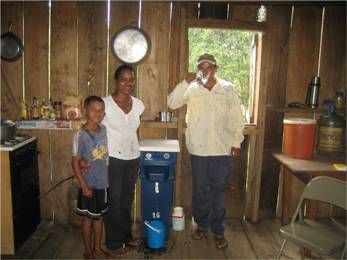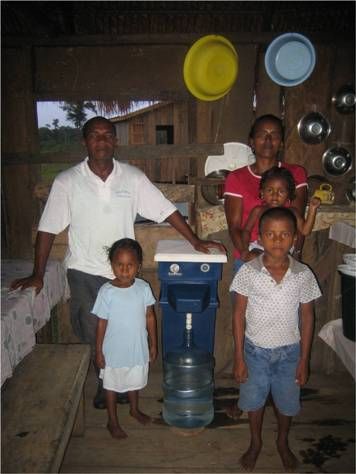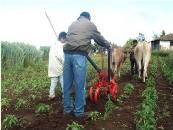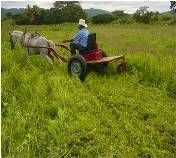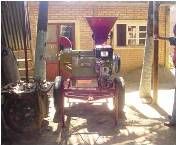Honduras Water Filter Project
|
The History of the Honduras Water Purification Project
Our relationship with the Honduras Water Project began with Norma Love in 2004, and has grown over the years in to a multi-district project that has not only been embraced by local Rotarians, but also encouraged by Rotary International. Norma, a Honduran who taught high school in Arlington for many years, connected with many members of the Arlington Rotary Club, and laid the ground work for this project with her passion for giving back to the community.
Since those early days, The Rotary Club of Arlington has been actively helping Norma and her foundation to help the people of Gracias a Dios, and many other areas in Honduras with humanitarian projects. The clean water initiatives implemented by our club have dramatically reduced the incidence of Dysentery, and other types of disease that are especially dangerous with children under the age of six.
The original "godfathers" of this project with The Arlington Rotary Club were Bob Griffin, Steve Zimmer and Don Mebus.
The area which Norma called to our attention is the state or department of Gracias a Dios. It is the easternmost and most remote area of Honduras.
After the original trip to the area in 2005, we began doing small projects with the villagers of Mocoron including helping the school, the women's cooperative, and the men's cooperative. In 2006, we were awarded two Matching Grants, one for Biosand filters and one for water wells. The statistics for waterborne disease in Honduras overall are horrible and Gracias a Dios is certainly worse than the average statistics. All the villages take their drinking water straight from the rivers that are contaminated primarily from animal and human waste. The villagers we've met with say that rate of illness, primarily diarrhea, is at least 30% among the children.
We began installing biosand filters in five villages in 2007. These filters, invented by a Rotarian from New Hanpshire are capable of filtering water straight from the contaminated river and providing safer drinking water indefinitely with routine minor maintenance. During our last two trips we drank biosand filtered water for the last five days of our trip with no problems.
Thus far we have installed 175 filters in five villages. In 2007, a team from four different clubs in 5790 visited these five villages. In the three where the filters had been deployed, we were told of the significant results the filters had achieved. Although we don't have good quantifiable numbers yet, were told repeatedly by parents, elders and health professionals that the incidence of disease/diarrhea had been dramatically reduced. We heard directly from the heads of households that the filters were being used and they were confident they know how to maintain them. In 2008, we visited the last two villages and saw and heard the same good results.
We have also installed approximately 70 shallow water wells in nine villages over the last year. In 2008, we saw our wells, and most are working properly. We do know that we need to improve the ability of the villagers to maintain the wells.
Because of the confirmed positive results from our first filter project, Districts 5790 & 5770 Honduras project team decided to focus our next two Matching Grants on biosand filters.
We were just recently approved for two new grants totaling $95,000. We plan to install almost 600 filters in several more villages throughout La Mosquitia. On our trip last Aug, based on recommendations from the Health Dept, we identified and visited the area for deployment of our new filters. In the area around the village of Auca, we identified over 500 homes that need our filters.
One of our new grants also includes funding for a prototype semimodern farming activity, which we will do in the village of Rondinon one village. Current farming techniques employ no animals, automation, or any practices like crop rotation or use of fertilizers. Farming yield is subsistence at best and many families are not able to feed themselves during time of flood or drought. We hope to demonstrate the ability to greatly increase farming yield to allow for storing additional food and a source of revenue.
Tom Sheriff, myself and Mike Kiester and Brian Henderson from District 5770 in Oklahoma trveled to Honduras in Aug to assess results thus far and make plans for implementing our new grants. District 5770 has partnered with us on one of our grants and has provided substantial funding. We anticipate that they will continue to work with us in the future to compliment our efforts by providing more filters, wells, agriculture or a sorely needed effort to improve sanitation.
Our trip again confirmed that Rotary is developing a legacy in Gracias a Dios and making a real difference in the lives of the villagers.
2007 Honduras Trip Report 2008 Honduras Trip Report |
